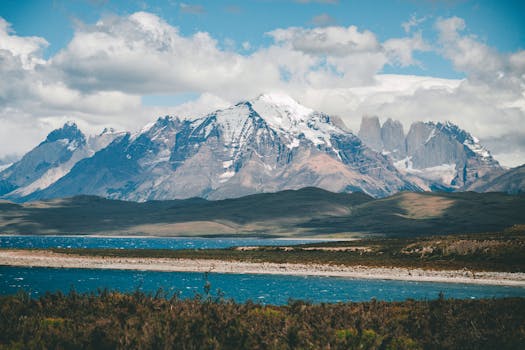Yvon Chouinards Journey from Climbing to Clothing

Yvon Chouinard's journey from climbing enthusiast to the founder of Patagonia is a remarkable tale of passion, innovation, and commitment to environmental stewardship. Born in 1938 in Maine, Chouinard developed an early love for nature and adventure. His interest in climbing began in his teenage years when he joined the Southern California Falconry Club, where he met other young climbers who would shape his future endeavors.
Chouinard's initial foray into the world of climbing gear began out of necessity. Frustrated with the available equipment, he started making his own pitons, which were stronger and more durable. This ingenuity led to the founding of Chouinard Equipment Ltd., a company dedicated to producing high-quality climbing gear. His designs revolutionized the industry, but it was his shift towards sustainable practices that truly set him apart.
The transition from climbing gear to clothing came almost serendipitously. In the early 1970s, Chouinard and his friends started wearing rugby shirts during climbs because they were more durable than traditional cotton shirts. This sparked an idea that would eventually lead to the creation of Patagonia, a brand synonymous with outdoor apparel and environmental activism.
The Genesis of Chouinard Equipment
Yvon Chouinard's entrepreneurial journey began with a desire to improve climbing gear. He started by forging pitons in his backyard, using a coal-fired forge and anvil. These pitons quickly gained popularity among climbers for their strength and reusability. By 1965, Chouinard Equipment Ltd. was established, becoming the leading supplier of climbing hardware in North America.
However, Chouinard soon realized that the widespread use of pitons was causing significant damage to rock faces. In response, he pioneered the development of environmentally-friendly alternatives like aluminum chocks and stoppers that didn't require hammering into rock surfaces. This innovation marked the beginning of his lifelong commitment to sustainability.
From Climbing Gear to Outdoor Apparel
The leap from gear to clothing was driven by practical needs. During a trip to Scotland in 1970, Chouinard purchased a rugby shirt because of its ruggedness and functionality. He found it perfect for climbing and soon began importing them for friends and fellow climbers. The shirts' popularity highlighted a gap in the market for durable outdoor clothing.
This realization led to the birth of Patagonia in 1973. Named after the rugged region at the southern end of South America, Patagonia's mission extended beyond producing high-quality apparel; it aimed to promote environmental awareness and conservation. The company's distinctive logo, featuring Mount Fitz Roy in Patagonia, symbolizes this commitment.
Patagonia's Growth and Environmental Advocacy
Patagonia quickly became known for its innovative products and strong environmental stance. One notable example is the introduction of Synchilla fleece in the 1980s, made from recycled plastic bottles. This not only provided a sustainable alternative to traditional fleece but also set a precedent for incorporating recycled materials into outdoor gear.
Chouinard's philosophy extended beyond product innovation. He instituted policies such as donating 1% of sales to environmental causes through the "1% for the Planet" initiative. Patagonia also actively participated in various environmental campaigns, including efforts to protect public lands and reduce carbon emissions.
Challenges and Controversies
Despite its success, Patagonia faced several challenges and controversies over the years. The company's rapid growth sometimes clashed with its environmental ideals, leading to difficult decisions about production practices and supply chains. Nevertheless, Chouinard remained steadfast in his commitment to sustainability.
One notable controversy involved Patagonia's decision to stop supplying retailers who didn't align with its environmental values. This move sparked debate but ultimately reinforced the company's dedication to its core principles.
Legacy and Influence
Yvon Chouinard's influence extends far beyond Patagonia's product lines. His approach to business has inspired countless other entrepreneurs to prioritize sustainability and social responsibility. Companies like TOMS Shoes and Allbirds have adopted similar models, emphasizing ethical production and giving back to communities.
Chouinard's legacy is also evident in his numerous publications, including "Let My People Go Surfing," which outlines his unconventional business philosophies and environmental ethics. His story continues to inspire new generations of entrepreneurs who seek to balance profit with purpose.
A Look at Patagonia Today
| Aspect | Details |
|---|---|
| Founded | 1973 |
| Headquarters | Ventura, California |
| Key Products | Outdoor Apparel, Gear |
| Environmental Initiatives | "1% for the Planet," Sustainable Materials |
| Revenue (2022) | $1 Billion+ |
The Future of Sustainable Business Practices
The impact of Yvon Chouinard's journey from climbing enthusiast to clothing magnate continues to shape industries beyond outdoor apparel. As consumers become more conscious of their environmental footprint, businesses are increasingly adopting sustainable practices inspired by Patagonia's model.
The future promises further innovation in sustainable materials and ethical production methods. As new challenges arise, companies must remain adaptable while staying true to their core values—much like Yvon Chouinard has throughout his remarkable career.
In summary, Yvon Chouinard's journey is a testament to how passion can drive innovation and change entire industries. From humble beginnings as a climber forging pitons in his backyard to leading one of the most environmentally-conscious companies in the world, Chouinard has shown that it's possible to succeed in business while making a positive impact on the planet.